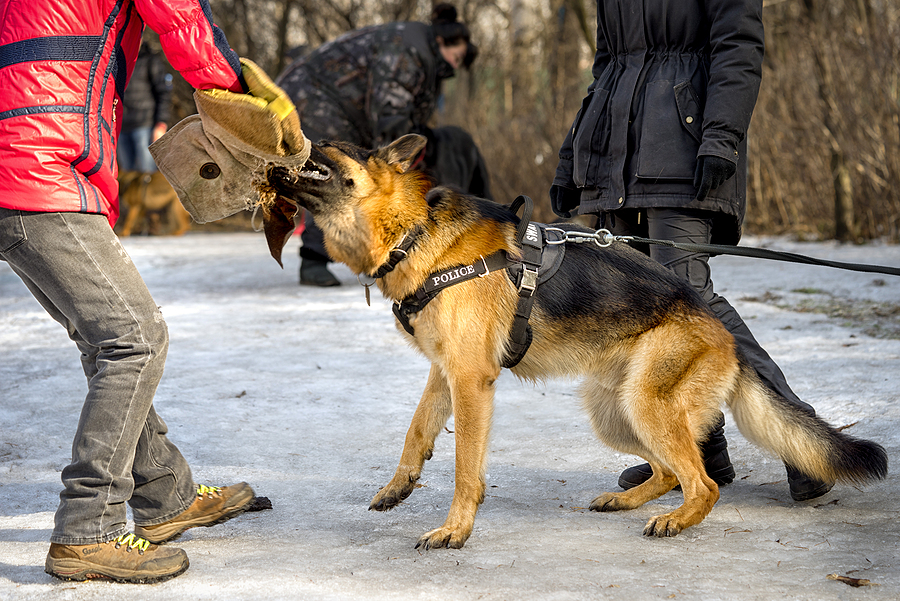A Guide to Homeowner and Landlord Liability for Dog Bites

Suffering a Dog Bite
If a dog has never bitten you, you may not realize the trauma that comes with it. Society shows us that “dogs are a man’s best friend,” so we innately trust them, and most of us want to play with them. If a dog turns on you, that can destroy that level of trust or playfulness; for some, the trauma affects them for a long time or life.
What does it mean for a landlord if a dog bites someone? This article will explore how you can protect yourself in the future.
What Are the Laws Surrounding Dog Bites?
The statutes regarding dog bites are not black and white. What this means is that most states follow the “one-bite rule.” The “one-bite rule” for dog bites refers to the owners who have known that their dog has exhibited behaviors of viciousness or indications of attacks in the past and, therefore, can be held liable based on prior dangerous interactions.

In Utah and Nevada, however, the “one-bite” rule is overlooked as a liability, unfortunately, can be found even after the first bite. Facts such as the dog showing no indication before dangerous behavior, being scared and reacting, or being well-trained are mostly irrelevant.
Utah Code Ann 18-1-1 Liability and Damages for Dog Injury
Per the Utah Code 18-1-1, the dog owner or those that care for the dog are responsible for the dog’s behavior (biting) when another party’s dog is injured or killed if the dog is not on their private property or secured behind a fence.
A dog owner or caretaker of the dog is responsible to the person affected by the bite caused by their dog.
Police officers are not liable if a police canine injures someone while trying to locate a suspect. In this situation, the state, county, city, or township is neither responsible.
Damages sustained by a dog’s actions typically follow comparative negligence.
What is Comparative Negligence?
Comparative Negligence is a standard that several states follow and apply to car accidents, injuries, and more. Both Utah and Nevada follow a standard similar to comparative negligence. The liability of each party is analyzed, and any damages calculated will be assigned a percentage based on each party’s liability.

For example, if one party is found to be 50% or more at fault for what happened that caused the damages, they may not be able to recover anything from the other party. If they are found to be liable but not more than 50% shared or comparative liability, they may be able to recover damages from the incident.
What is a “Vicious Dog”?
In Nevada, laws are set up to further protect patrons from “vicious dogs.” A “vicious dog” has been found on two occasions in 18 months or less to have behaved in a way that was dangerous, vicious, or menacing to another party or animal.
More specific laws are in place to protect other parties from “vicious dogs” that are not secured either by a fence, a cage, or a car. Laws are in place to discourage keeping, selling, or transferring ownership of “vicious dogs” as well. These are in place to aid in the safety of all involved and ward off attacks by a dog with a determined past of menacing or dangerous behaviors.
Are Landlords Liable for Dog Bites?
Several factors will be analyzed to determine the liability of a dog owner or landlord concerning dog bites. The factors that the courts will review closely are whether or not the landlord acted negligently and whether that led to the injury or dog bite.

Some of the most common examples of liability are listed below.
Fencing/security around the property – was the dog properly secured or fenced in without reasonable means of escaping to avoid dog bites or other dangerous activities?
Reasonable means to protect vulnerable parties – was the dog permitted to interact with vulnerable parties such as young children while unsupervised?
Local animal control laws – was the landlord following local animal control ordinances?
Leash or muzzle – was the landlord liable for allowing the dog to be walked off leash or without a muzzle, and that led to the injuries? The landlord will expect reasonable behavior, as they can’t control each time their tenants allow their dogs to be off-leash, but rather that they took reasonable measures to inhibit this behavior by their tenants.
Failure to intervene – was the landlord reasonably aware of the dangerous behaviors of the dog in question and failed to act to protect other parties? For example, has the dog on their property been involved in dangerous behavior before, and the landlord didn’t require that the dog be adequately secured or other actions are taken to prevent further injuries?
How Can I Protect Myself as a Landlord?
As mentioned above, the laws don’t provide a black-and-white approach to ensure that you are protected at all times from liability, but there are actions that you can take to protect yourself. Ensuring the fencing at the property is secure, that all tenants are aware of the ordinances specific to that area and are following them, that if there are dangerous dogs on your property, that you take reasonable measures to protect the rest of the parties involved and more.
If you are in a situation where you may need legal representation, you can rely on our determined and experienced approach to be your advocate. Each situation is different, and we will get to the bottom of the circumstances and protect you however we can.
Call our offices at (702) 901-6302 today to learn how we can best protect you.
